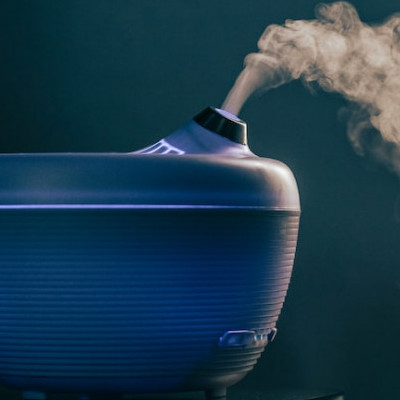
You step into your house, and the smell of freshly baked cookies tantalizes your nostrils. It certainly does take some of you back to the joyful memories of your grandmother´s kitchen and delicious homemade meals, correct?
The sense of smell is a beautiful gift, and pleasant scents can certainly alter your mood and bring back a truck full of delightful memories to your mind instantly. What are your thoughts about aromatherapy? Can aromatherapy truly help with stress and anxiety? This article takes a closer look at aromatherapy for stress and anxiety.
What is aromatherapy?
Aromatherapy is a form of alternative medicine that studies the influence scents have on human behavior, especially the relationship between feelings and emotions, primarily through essential oils.
This concept is not a new kid on the block. It is a practice that is more than 3,500 years old, to be exact. The core of aromatherapy involves using all the parts of plants to promote health and well-being. Another name for it is essential oil therapy.
Who and what precisely is aromatherapy good for?
In a nutshell, aromatherapy is for people who are looking for a natural, plant-based way to improve their physical, mental, and emotional health.
Interesting facts about aromatherapy
Ancient Egyptians burnt incense from aromatic woods, spices, and herbs to honor their deities.
In 1935, René Gattefosse from Lyon, France, gave aromatherapy its name.
In ancient times, the most sought-after materials were frankincense and myrrh.
Ancient China, India, and Egypt used natural botanicals in treating illnesses.
Pure lavender has a reputation for healing burns.
Approximately 30 roses produce a single drop of rose oil.
What are the benefits of aromatherapy?
Today aromatherapy is most commonly known for relaxation, and for a good reason too, because we live in a stress-drenched world, and it is essential to find ways to destress promptly. Aromatherapy can offer instant stress relief. For an in-depth look into stress, read our article about it here.
The benefits of aromatherapy include:
- may promote wellness and contentment
- aids in stress relief (lavender, jasmine, rosemary)
- may reduce anxiety (frankincense, apple)
- may keep you awake and alert (citrus, menthol)
- may uplift your mood (ginger, rose)
- may ease symptoms of colds/flu (menthol, eucalyptus)
- may help alleviate pain (chamomile)
- may boost immunity (tea tree)
- may calm nerves (sandalwood)
- opens and clears your mind/thoughts (peppermint)
- may improve your quality of sleep (sage, lavender)
- may soothe sore joints (eucalyptus, rosemary)
- may treat headaches/migraines (peppermint)
- may improve depression (sage, rose)
- freshens breath (peppermint)
- massage therapy for knee pain (mustard, ginger)
- may improve hospice care (lemon, lavender)
What are the different types of aromatherapy treatments?
There are several types of aromatherapy treatments and different ways to use them. You can inhale it, ingest it or apply it topically to the skin.
Please note that pure essential oils are potent and that you should not ingest all essential oils. Speak to an aromatherapy expert about what may be right for you.
You can use aromatherapy through:
- diffusers
- aromatic spritzers
- bathing salts
- body lotions, creams, oil (massages)
What are the disadvantages of aromatherapy?
Aromatherapy may work wonders for some, but it may not be suitable for everyone, especially people with a history of allergy problems.
Aromatherapy may cause:
- allergic reactions in some people (inhale/touch)
- may cause headaches, nausea, and dizziness (symptoms may leave immediately when you leave the room or wash off essential oils from the skin)
- may cause skin irritation (may develop a rash after skin exposure. It is best to do a skin patch test before using any products.)
- may react with prescription drugs or supplements (speak to your physician to avoid any mishaps)
- may cause burns (do not use photosensitive oils in the sun, this is a common mistake. Some oils should never come in contact with direct sunlight as it may cause 3rd-degree burns)
There is no evidence that aromatherapy is harmful to pregnant women. However, doctors caution pregnant women against it as a precaution. Inhalation may be the safest form of aromatherapy if it´s diffused well in a ventilated area.
Conclusion
Aromatherapy can instantly alleviate stress and anxiety. It is an old practice with roots starting as a form of worship in ancient Egypt for over 3,500 years. Aromatherapy is a natural/holistic method that claims to heal your body, mind, and soul through the use of plant-based essential oils.
Aromatherapy can be a good alternative for people looking for a natural path to improve their health and well-being. But it is not for everyone. Some people may be allergic to aromatherapy, and for those on certain medications, this may not be the most suitable choice for them. Speak to your physician to see what´s right for you.
You may like
Manage your stress like a boss | Elevate Healthy Lifestyle Choices
The ugly side effects of stress and what you can do about it | Elevate Healthy Lifestyle Choice
How can you make your skin glow? | Elevate Healthy Lifestyle Choices

A great post about aromatherapy!
I, for one, use essential oils in my healing work, as well as in my everyday household cleaning. I can emphatically agree that smells have a significant impact on how we feel.
For me, smells also help to bring back memories or help to create more positive memories. I love using diffusers as they offer a gentle yet efficient way to set a mood in a room.
Thanks, Tigan
Hey Tigan,
Thanks for sharing your feedback with us. I (Dana) do wholeheartedly agree with you. I love pleasant smells, they do set a mood and can be nostalgic in many ways.
Thanks for stopping by.
Cheers,
Dana